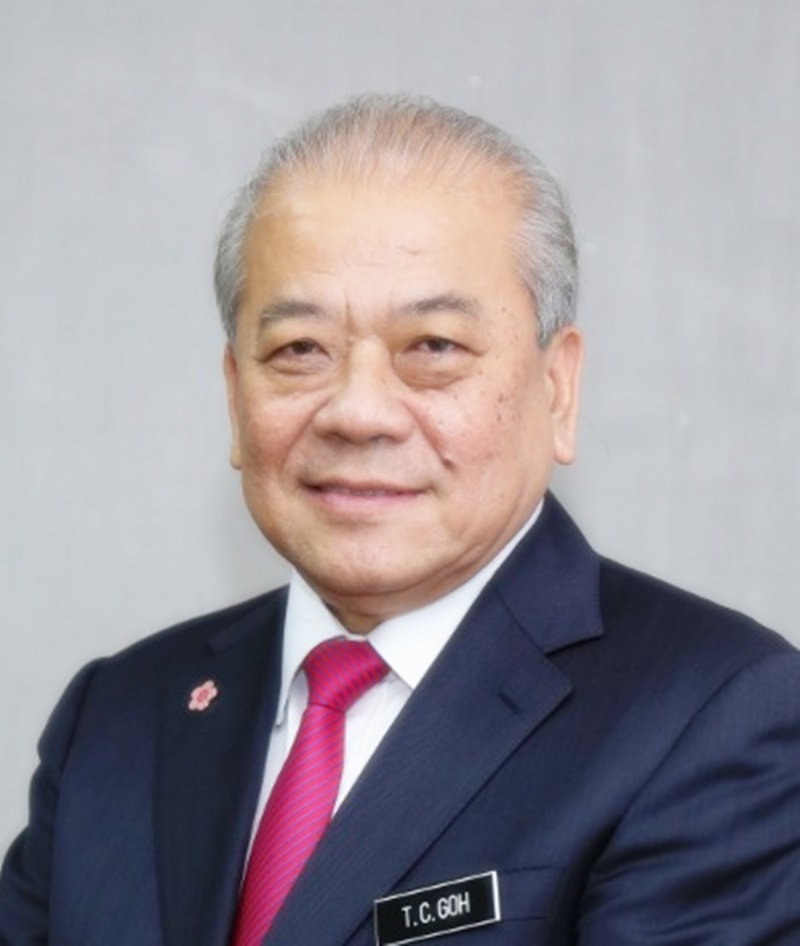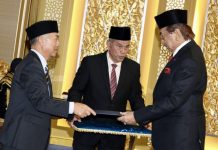KUALA LUMPUR: Tan Sri T.C Goh, President of The Federation of Chinese Associations Malaysia (Huazong) has today called on the government to reconsider the proposed mandatory EPF contributions for foreign workers in Malaysia, citing five main reasons and suggestions, including the fact that a vast majority of these workers are not going to work here till their retirement age.
The following are the five points and suggestions on the issue:
1. The government could come up with a more suitable short-and-medium term scheme, in line with the existing work permit validity policy (such as 10 years), specifically for foreign workers, especially those in low-skilled jobs, during their employment in Malaysia. This scheme would solely cover EPF contributions from employers and the foreign employees they hire.
2. If implemented, the contribution rates for both foreign workers and their employers should be re-examined to avoid adding undue burdens on employers, while also considering whether foreign workers themselves are willing to have a portion of their monthly cash flow allocated towards this purpose.
3. Since foreign workers are not Malaysian citizens and are not working long-term until retirement in Malaysia, there is a need to clarify whether they would enjoy the same level of annual EPF interest returns as Malaysian citizens. This is a matter that requires further discussion and clarification.
4. The proposed implementation could exacerbate the outflow of foreign exchange. Currently, millions of legal and illegal foreign workers in Malaysia cause an annual outflow of billions of ringgit. If the EPF contribution is extended to include them, the total outflow would undoubtedly increase significantly.
5. The proposed move would inevitably create additional burden on employers. In addition to taxes related to hiring foreign workers, starting next year, the minimum wage will increase from RM1,500 to RM1,700 (an increase of RM200). Based on the new RM1,700 base salary, employers would have to pay an additional 12% to 13% in EPF contributions (depending on the salary scale), which amounts to between RM 204 to RM 221. In other words, it would essentially incur employers an additional cost of over RM400, in combined salary and EPF costs, for each foreign employee next year.
In a statement issued today, Goh said that after gathering feedback from various state Chinese assembly halls, state Chinese associations, and many industry employers, Huazong believes the government should engage with various industries, affected groups, and stakeholders to collect more opinions and suggestions, and re-examine this proposed move of mandatory EPF contributions for foreign workers and their employers.
Goh, who is also President of The Federation of Chinese Associations Sabah (FCAS) pointed out that the primary objective of the EPF scheme is to ensure retirement security for Malaysian citizens and workers through compulsory contributions from both employers and employees, as well as voluntary contributions from members.
“It is a long-term investment and savings scheme. The initial goal and role of the EPF, including the high annual returns enjoyed over the years, should be carefully considered and thoroughly studied, before extending the same benefits to foreign workers,” he said.
He thus hopes before proceeding to extend the EPF scheme to cover the foreign workers, the government could clarify the implementation details, particularly regarding the contribution rates for employers and foreign employees, as this is one of the key issues.
“It is important to understand that, aside from professionals who enjoy higher salaries, the foreign workers we refer to are usually laborers or semi-skilled workers. Over the years, the government has approved the introduction of these foreign workers mainly to meet the demand in the private sector for labor in areas such as plantations, construction, manufacturing, and food services, filling vacancies that local citizens are unwilling to take up,” he said.
He continued that the primary reason for hiring foreign workers is not only to fill these gaps but also to reduce wage costs, thereby saving on production costs, improving competitiveness, and promoting national development.
Further citing the principle and rationale of employers hiring foreign workers to reduce expenses, Goh believes that the government should establish different EPF contribution rates for foreign workers and local citizens, rather than setting them at the same level.
“If the contribution rates are too high, it would go against the employer’s principle of reducing costs. If foreign workers’ contributions are fixed at the same rates as locals, it would cause confusion and disputes between foreign and local workers, potentially leading to backlash from employers and local citizens,” he said.
He thus reiterated that the government should hold more discussions with manufacturers, employers, and stakeholders to gather feedback before implementing the policy.
He noted that preliminary calculations by some manufacturers organizations showed that based on the current EPF contribution rates of 12% to 13% (depending on salary scale), if applied to the approximately 2.5 million foreign workers in Malaysia with a monthly salary of RM1,700, employers would need to pay at least an additional RM500 million each month, equivalent to RM6.6 billion annually, for foreign workers’ EPF contributions, which would be a significant financial burden.
“These calculations are based on next year’s minimum wage increase from RM1,500 to RM1,700. The higher the salary, the more the employer will have to contribute. Additionally, the more foreign workers an employer hires, the higher the EPF costs they will face,” he explained.
Goh also believes that once this new policy is implemented, it will definitely impact local companies’ decisions of hiring foreign workers.
“The extent of the impact will depend on whether the contribution rates are high or low. If the rates are not on par with local workers, and employers find them acceptable but necessary, they will continue hiring foreign workers, albeit in a more cautious or cost-saving manner,” he said.
He added that another phenomenon likely to occur is an increase in the outsourcing or contract-based hiring of foreign workers, as employers may use this grey area to reduce costs. However, whether this will lead to other issues remains to be seen.
Goh also expressed support for the government’s repeated statements that, aside from professional fields, the introduction of foreign labor should gradually be reduced. He also commended the government’s continuous efforts to crack down on illegal foreign workers and undocumented immigrants through amnesty programs, describing it as a commendable policy.-pr/BNN






